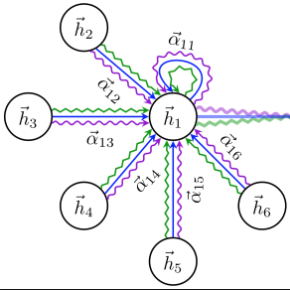Global contexts in images are quite valuable in image-to-image translation problems. Conventional attention-based and graph-based models capture the global context to a large extent, however, these are computationally expensive. Moreover, the existing approaches are limited to only learning the pairwise semantic relation between any two points on the image. In this paper, we present Latent Graph Attention (LGA) a computationally inexpensive (linear to the number of nodes) and stable, modular framework for incorporating the global context in the existing architectures, especially empowering small-scale architectures to give performance closer to large size architectures, thus making the light-weight architectures more useful for edge devices with lower compute power and lower energy needs. LGA propagates information spatially using a network of locally connected graphs, thereby facilitating to construct a semantically coherent relation between any two spatially distant points that also takes into account the influence of the intermediate pixels. Moreover, the depth of the graph network can be used to adapt the extent of contextual spread to the target dataset, thereby being able to explicitly control the added computational cost. To enhance the learning mechanism of LGA, we also introduce a novel contrastive loss term that helps our LGA module to couple well with the original architecture at the expense of minimal additional computational load. We show that incorporating LGA improves the performance on three challenging applications, namely transparent object segmentation, image restoration for dehazing and optical flow estimation.
翻译:暂无翻译


